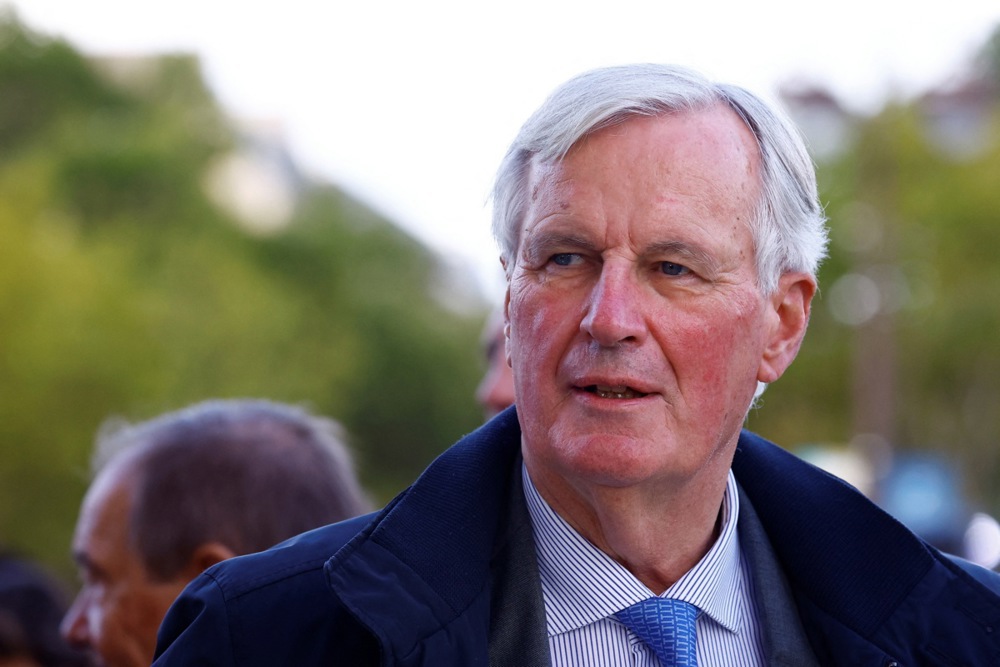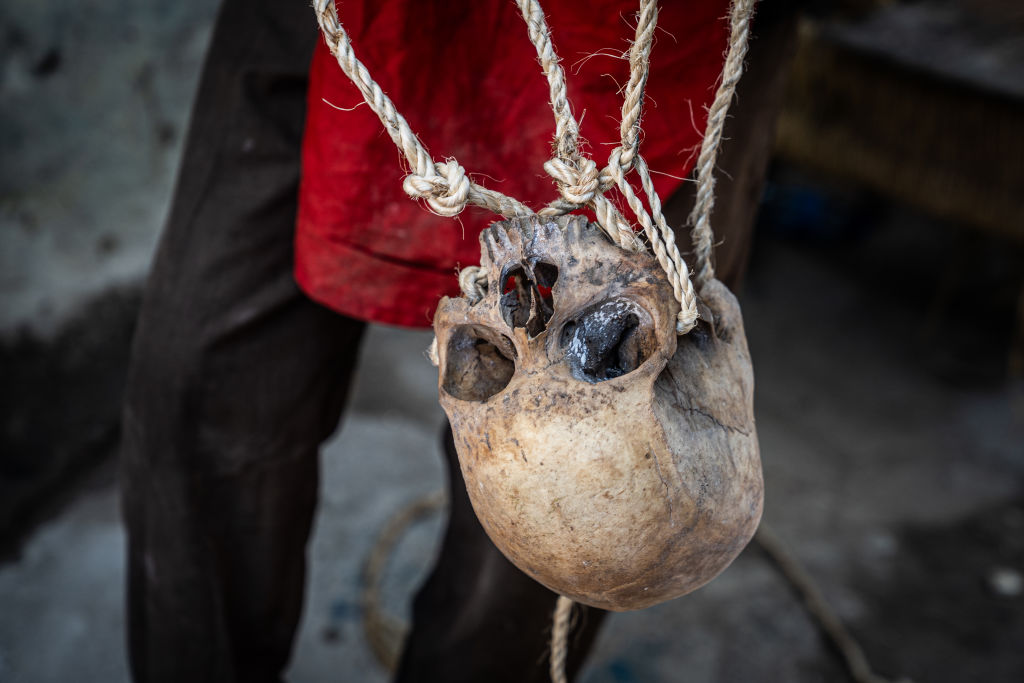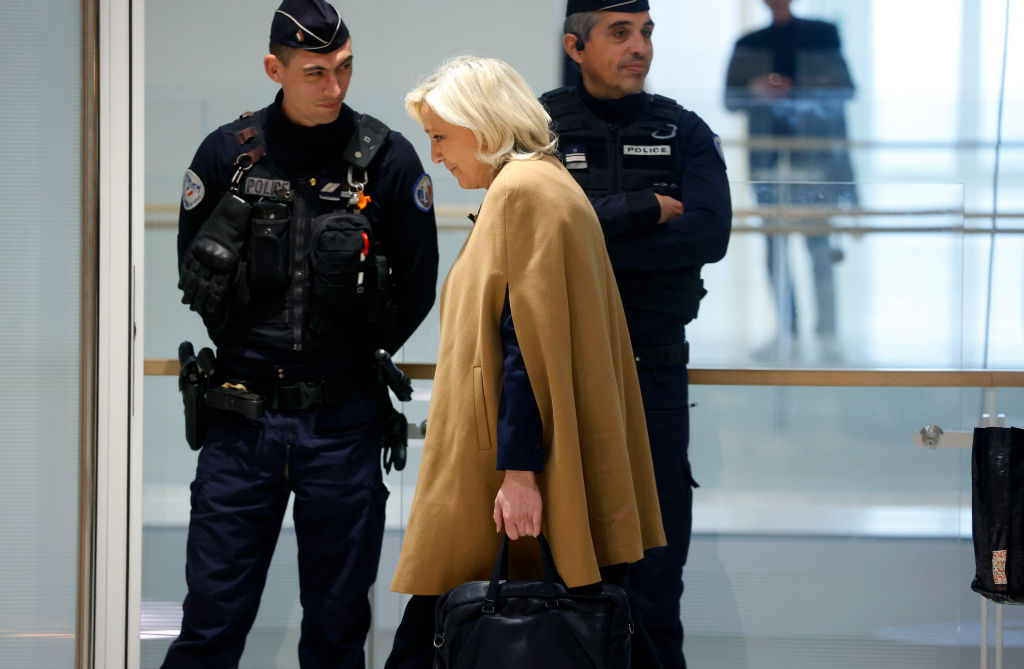The collapse of the French Government following a no-confidence vote backed by the hard-left and hard-right has plunged France deeper into political chaos.
President Emmanuel Macron, under mounting pressure following the vote and the stepping down of Michel Barnier as prime minister, addressed the nation on December 5 in an attempt to regain control.
During his speech, Macron dismissed growing calls for his resignation before his term ends in 2027 and announced plans for a special budget law he wanted to be passed later tin December.
He also criticised what he called the “anti-republican” forces that joined forces to topple Barnier, labelling them “destructive” to France’s democratic fabric.
The leaders of the opposition denounced his choice of words.
“In his speech, Emmanuel Macron continued a worrying trend of the Macron regime: claiming that opposing it, contesting its choices, is illegitimate, irresponsible and reprehensible on principle,” said National Rally (RN) chief Jordan Bardella.
Jean-Luc Mélenchon, head of the hard-left party La France Insoumise (LFI), said Macron did not understand what was happening in the country or its political customs.
As Macron hunts to name a successor, speculation has been mounting around three prominent contenders.
In a deadlocked National Assembly, Macron needs a figure capable of bridging divides and avoiding another crisis caused by a fragmented majority of MPs.
One leading contender is Sébastien Lecornu, the outgoing Minister for the Armed Forces and a seasoned member of Macron’s government since 2017.
With his Conservative background, Lecornu has proved popular within Macron’s central bloc, although critics have argued that relying on this bloc alone had already proved insufficient, as demonstrated by Barnier’s downfall.

Another potential pick is Bruno Retailleau, the outgoing Minister of the Interior.
A familiar face among the French public, Retailleau’s good relationship with the hard-right RN could serve to neutralise potential alliances between the it and the hard-left LFI – potentially stabilising the Assembly.
Picking yet another Republican as prime minister, though, could signal to some that Macron did not respect the vote of the MPs who ousted Republican Barnier.

François Bayrou, a centrist heavyweight and President of the MoDem party, has also emerged as a viable option.
Bayrou, who met with Macron over lunch on December 5, is seen as a bridge-builder capable of expanding the French President’s central bloc by reaching out to Greens and Socialists.
His reputation as a unifier may also help Macron broaden his support base in the National Assembly.

Amid these frontrunners, another name has surfaced: Ségolène Royal.
The former Socialist presidential candidate and a prominent left-wing figure has signalled that she was ready to take on the responsibility.
“I am available and I wrote a letter to the President,” she said on December 4.
“I owe it to all women and little girls,” she added.
Known for her deep roots in France’s political landscape, Royal’s inclusion would signal a pivot towards engaging the Left.

As Macron searches for a new prime minister, hoping to stabilise the fractured National Assembly, the country’s left-wing factions are fracturing.
The Socialist Party, under Olivier Faure, has signalled a willingness to compromise, further deepening the divide with the more hardline LFI.
On December 6, Faure stated that the Socialists were prepared to negotiate on contested issues such as retirement and tax reforms.
Notably, he hinted that his party might not immediately seek to repeal Macron’s controversial pension reform, which raised the retirement age to 64 — a move that had sparked nationwide protests earlier this year.
The Socialists have also floated the idea of a “no-confidence agreement”, where they would refrain from voting against the next government.
This has been seen as representing a clear attempt to distance themselves from LFI’s confrontational approach.
Faure explicitly criticised LFI, suggesting that the party’s refusal to compromise effectively excluded it from influencing the next government.
LFI leaders were quick to condemn the Socialists’ stance.
Manuel Bompard, LFI’s co-ordinator, denounced what he said he saw as a betrayal of their shared pledge to repeal the pension reform.
“To join a coalition with the Macronists, the Socialist Party is now ready to give up on repealing retirement at 64. Has the oath of June 8, 2023 to ‘do everything’ for this repeal already been buried? Astonishing,” he wrote.
Pour rejoindre une coalition avec les macronistes, le Parti Socialiste est désormais prêt à renoncer à l’abrogation de la retraite à 64 ans. Le serment du 8 juin 2023 de « tout faire » pour cette abrogation est-il déjà enterré ?
Stupéfiant. pic.twitter.com/nVaJVBhNLA
— Manuel Bompard (@mbompard) December 6, 2024
Macron’s weakened presidency, a paralysed government and relentless political infighting have been eroding France’s influence in Europe.
European Commission President chief Ursula von der Leyen is currently wrapping up Mercosur deal – despite French opposition.
The collapse of Barnier’s government after just two months and 29 days — the shortest-lived in the history of the Fifth Republic — has only amplified concerns about the nation’s stability.
One question looms among observers: Can Emmanuel Macron’s next administration outlast Barnier’s tenure, or will the political chaos deepen further?
European Commission President Ursula von der Leyen has arrived in Uruguay, signalling a last effort to finalise the long-delayed European Union-Mercosur trade agreement. https://t.co/w3GFNaS1rs
— Brussels Signal (@brusselssignal) December 5, 2024





